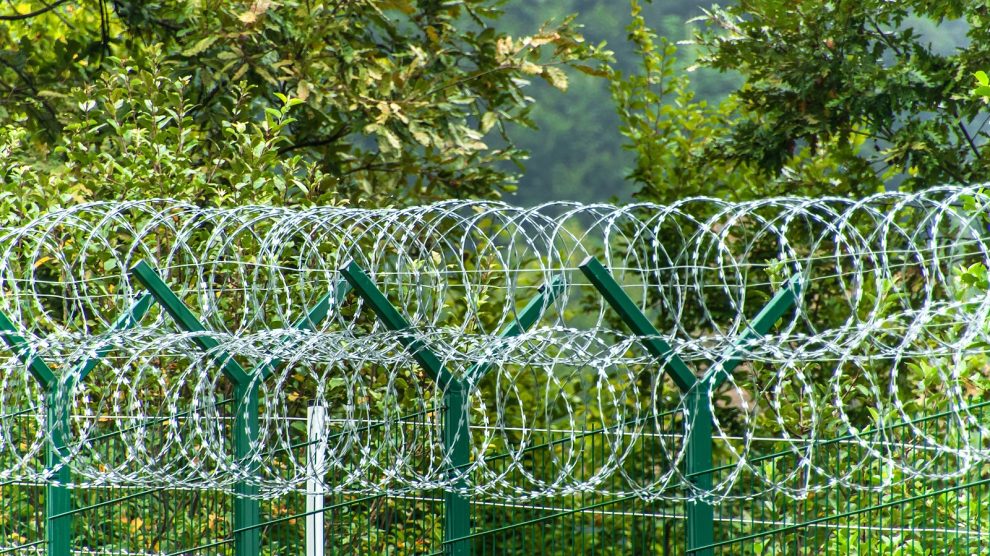The European Commission this week said that it will no longer monitor or report on Romania under the Cooperation and Verification Mechanism, given that all benchmarks had now been met. Schengen membership looks increasingly unlikely, however.
Romania was finally told by the European Commission on November 22 that it has met its commitments on judicial reform and the fight against corruption under the so-called Cooperation and Verification Mechanism (CVM), put in place when Romania joined the EU in 2007.
- Let us in
- Postcard from the Romania-Bulgaria border
- Can the Open Balkans project succeed without half of the region?
The Commission’s latest assessment of Romania concluded that the progress made by Bucharest is sufficient to meet the CVM commitments made at the time of its accession to the EU and that all benchmarks can be satisfactorily closed.
The assessment also takes account of the developing landscape for the rule of law in the EU, and in particular Romania’s full engagement in the rule of law report cycle.
“We’ve worked hard for this,” said Cătălin Predoiu, Romania’s justice minister, author of a series of a new laws that the Commission cited as evidence of Romania’s commitment to reform.
The CVM was established on the accession of Bulgaria and Romania to the European Union in 2007 as a transitional measure to facilitate both countries’ continued efforts to reform their judiciary and step up the fight against corruption and organised crime.
The CVM represented a joint commitment of the Bulgarian and Romanian governments and of the EU to remedy a number of remaining shortcomings identified at the time of accession, with the CVM to continue until the Commission considered that a number of benchmarks were satisfactorily fulfilled.
It’s fair to say that it was never intended to remain in place in for 15 years.
Bulgaria has not been monitored under the CVM since 2019, but monitoring continues within the annual rule of law cycle, as it now will for Romania.
No impact on Schengen bid
Both the European Council and the European Parliament will need to give their approval in order for the CVM to be formally closed, however, and there is no guarantee that closing the CVM will have any impact on Romania and Bulgaria’s bid to become members of the EU’s border-free Schengen area.
According to Predoiu, “there was never any formal link between the CVM and Schengen, although the Netherlands has long said that it would expect to see the CVM lifted before agreeing to our Schengen membership.”
The Netherlands is one of several countries that looks set to oppose Schengen membership for Bulgaria and Romania when EU justice ministers meet next month to vote on the issue. Sweden has also signalled opposition, while the latest member of the awkward squad is Austria, which last week raised the possibility of vetoing not just Bulgaria’s and Romania’s Schengen membership but also Croatia’s, which had long been considered a formality.
“This is not the time to be expanding Schengen,” said Interior Minister Gerhard Karner.

Croatia yes, Bulgaria and Romania no
This week however, speaking before a visit to Zagreb, Austrian Chancellor Karl Nehammer made it clear that Vienna did not oppose Croatian membership.
“We do not feel any pressure from migrants heading north from Croatia,” he said. “Croatia protects its borders in an exemplary way, and I see no problem with it joining Schengen,” adding that migrants coming through Bulgaria, Romania, and Hungary (a Schengen member) represented a “security threat”.
Nehammer also said that he believed the fate of the three would-be Schengen members will be voted on separately.
However, Czechia, which currently holds the agenda-setting six-month presidency of the European Council, and which has pushed for the enlargement of the Schengen area, has said that there will be just one vote for all three countries.
One vote or three, justice ministers will decide on December 8 at a meeting in Brussels. Both the European Commission and the European Parliament have called on the Council to welcome all three countries.
The Commission said last week that all three have fulfilled conditions to join Schengen and should benefit from participation “without any further delay”.
“It’s high time to say welcome,” the EU’s commissioner for home affairs, Ylva Johansson, said. “These three members states deserve to feel fully European. The wait has been long.”
Signals from The Hague, Stockholm and Vienna suggest that for Bulgaria and Romania at least, it could be even longer.
Unlike many news and information platforms, Emerging Europe is free to read, and always will be. There is no paywall here. We are independent, not affiliated with nor representing any political party or business organisation. We want the very best for emerging Europe, nothing more, nothing less. Your support will help us continue to spread the word about this amazing region.
You can contribute here. Thank you.







Add Comment